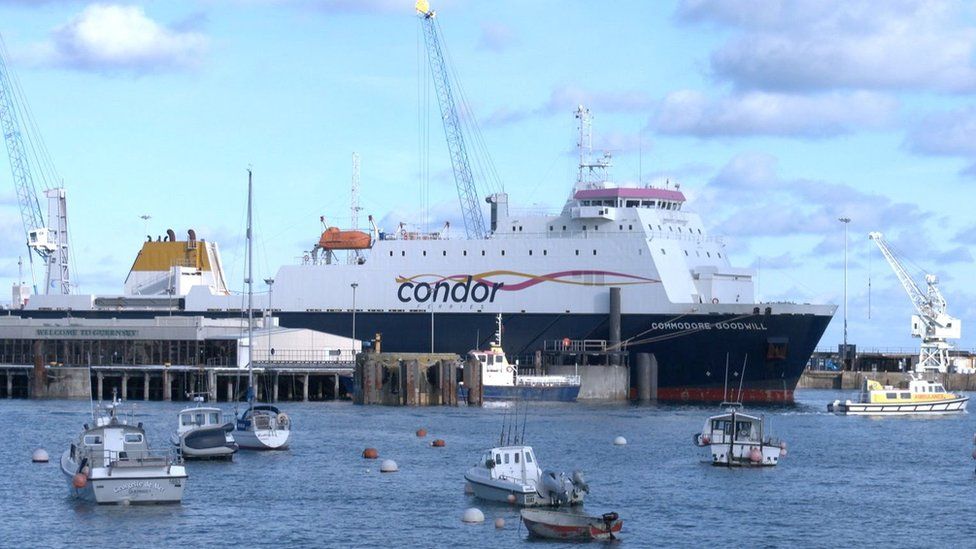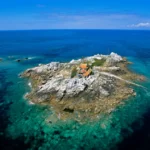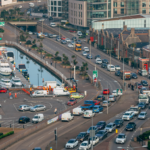Welcome aboard a comprehensive journey through the storied past, vibrant present, and promising future of Condor Ferries, the pivotal maritime link for the Channel Islands, particularly Jersey. This expansive post will explore how Condor Ferries has woven itself into the fabric of local life and economies, transforming from a modest regional service into a beacon of innovation and community partnership.
Introduction: Anchoring a Legacy
In the dynamic seascape of the Channel Islands, nestled serenely between the coasts of the United Kingdom and France, Condor Ferries stands out not merely as a transport service but as a historical pillar of regional connectivity. Founded in 1947 and rebranded in 1964, Condor Ferries has evolved significantly, steering through decades of maritime challenges and opportunities. This exploration will dive into its history, its strategic expansions, its commitment to sustainability, and its profound community ties.
Chapter 1: The Historical Journey
Setting Sail: The Foundations of Condor Ferries
In the serene backdrop of the post-war Channel Islands, the seeds of what would become Condor Ferries were planted. Originally launched as Commodore, the company embarked on its inaugural journey in 1947, navigating the serene waters between France and the Channel Islands. This modest beginning set the stage for a service that would grow to become an integral part of the Channel Islands’ infrastructure, supporting not just tourism but also the daily lives of island residents.
The early operations primarily focused on basic passenger services. However, as the economic landscape of the Channel Islands evolved, so did the need for more robust and efficient maritime links. Recognizing this need, the company underwent a pivotal transformation in 1964, rebranding to Condor Ferries. This rebrand was not merely cosmetic; it marked a strategic shift towards expanding routes and upgrading fleet capabilities to cater to a growing demand for both passenger and freight services.
Navigating Through Growth: The Expansion Era
The 1980s and 1990s were a period of significant expansion for Condor Ferries, marked by ambitious initiatives and strategic decisions that would shape the future of the company. In 1987, Condor made a bold move by launching the first-ever service connecting the Channel Islands with the UK. This new route was a game-changer, offering a direct link for passengers and freight between the islands and mainland UK, thus fostering stronger economic ties and providing vital logistical capabilities that supported the islands’ growing industries and tourism sector.
The expansion into new markets required a fleet that could handle increased demand and provide faster, more reliable services. In response, Condor Ferries began to invest in high-speed ferries in the early 1990s, starting with the Condor 10, a state-of-the-art vessel that revolutionized travel times and passenger experience. This vessel was not only faster but also more comfortable and capable of operating in a variety of weather conditions, ensuring a consistent service that could support the year-round needs of the islands.
Technological Pioneers: High-Speed Service and Beyond
The introduction of high-speed ferries like the Condor 10 marked the beginning of a new era for Condor Ferries. It wasn’t just about speed; these vessels incorporated advanced maritime technology, such as stabilizers and efficient propulsion systems, which minimized the environmental impact and improved fuel efficiency. The success of these initial high-speed vessels led to further investments, including the Condor Vitesse and Condor Express, each bringing enhancements that set new industry standards.
As Condor Ferries continued to push the boundaries of maritime technology, it also began to explore innovative solutions to ongoing challenges, such as maritime safety and operational efficiency. This led to the adoption of sophisticated navigation systems and safety protocols, ensuring that Condor remained at the forefront of maritime operational excellence.
The late 1990s and early 2000s also saw Condor Ferries expand its footprint further, taking over routes and operations from competitors and consolidating its position as the primary maritime link for the Channel Islands. Each strategic acquisition and route expansion was carefully chosen to strengthen Condor’s network, enhancing its capacity to serve both its passengers and the broader economic needs of the islands.
Chapter 2: Fleet Modernization and Technological Evolution
Overview of the Current Fleet
As we venture deeper into the capabilities of Condor Ferries, it becomes apparent how crucial its modern fleet is to the operational success and reliability of the service. Here’s a detailed look at the vessels currently navigating under the Condor banner, each serving a strategic role in the network connecting the Channel Islands with the wider region.
MV Commodore Clipper: This robust roll-on/roll-off ferry has been a stalwart of the fleet since 1999. Operating under the flag of Nassau, Bahamas, the Commodore Clipper is an all-weather vessel designed to ensure continuous service regardless of the often-unpredictable Channel weather. Primarily used for both passenger and freight services, it has a significant capacity that makes it indispensable for the economic sustenance of the islands.
MV Commodore Goodwill: Introduced to the fleet in 1996, this cargo vessel focuses on freight transport between Portsmouth and the Channel Islands. Its inclusion in the fleet has streamlined logistics operations, providing a dependable link for the transport of goods, which is critical for the islands’ supply chain and local businesses.
HSC Condor Liberation: Launched in 2015, this high-speed craft marked a significant technological advance for the fleet. Operating from Poole, the Condor Liberation is celebrated for its speed and efficiency, reducing travel time considerably and enhancing passenger experience with its stable and swift crossings.
HSC Condor Voyager: The latest addition to the fleet, entering service in 2021, this high-speed craft operates on several routes, including services to St Malo. The Condor Voyager represents the evolution of ferry services with enhanced passenger amenities, increased capacity, and better environmental performance.
MV Condor Islander: Entering service in 2023, the newest vessel is set to further enhance the capacity and frequency of services offered by Condor Ferries. With state-of-the-art navigational technology and designed for efficiency, the Condor Islander is a testament to the company’s commitment to future-proofing its fleet.
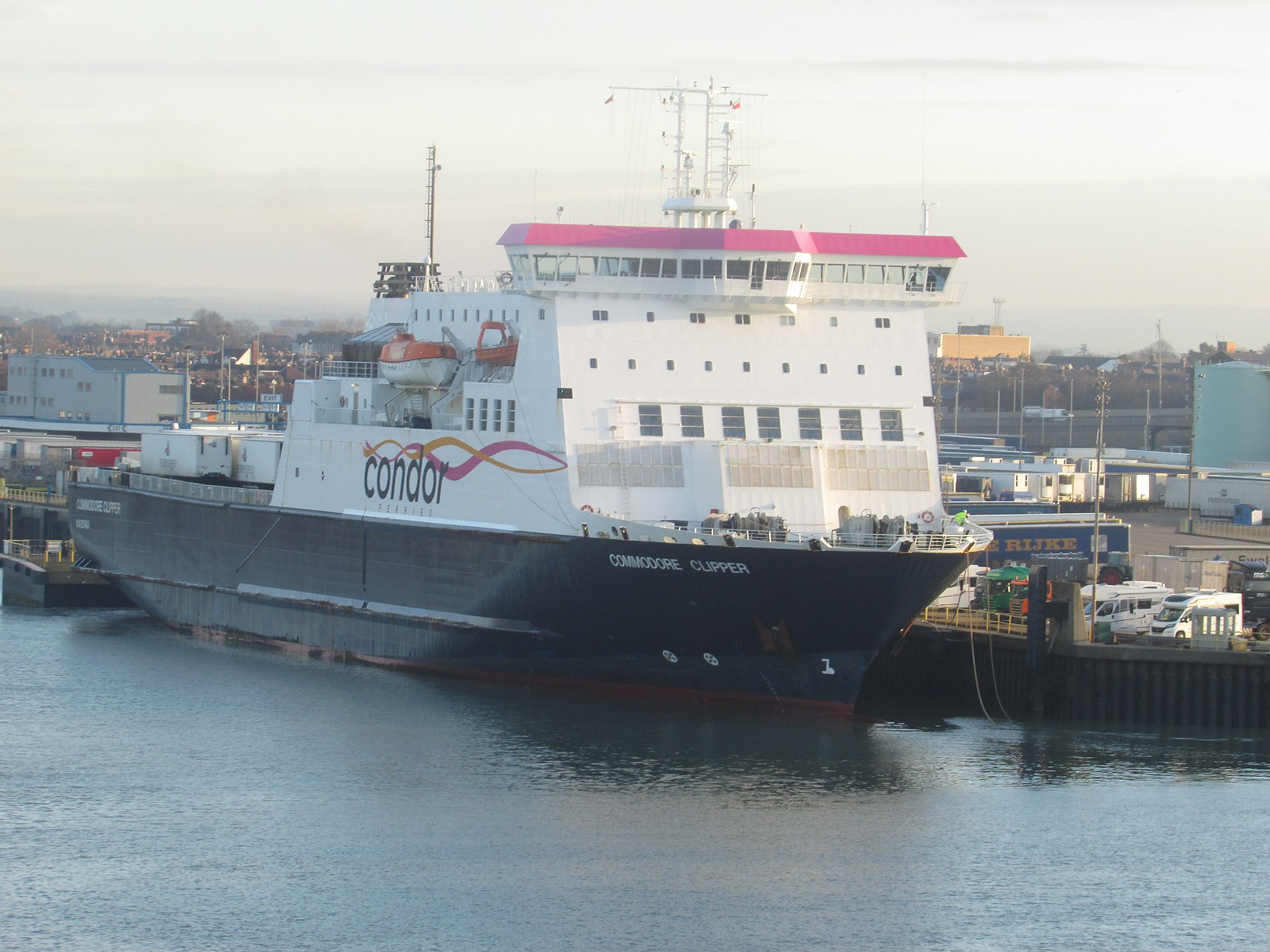
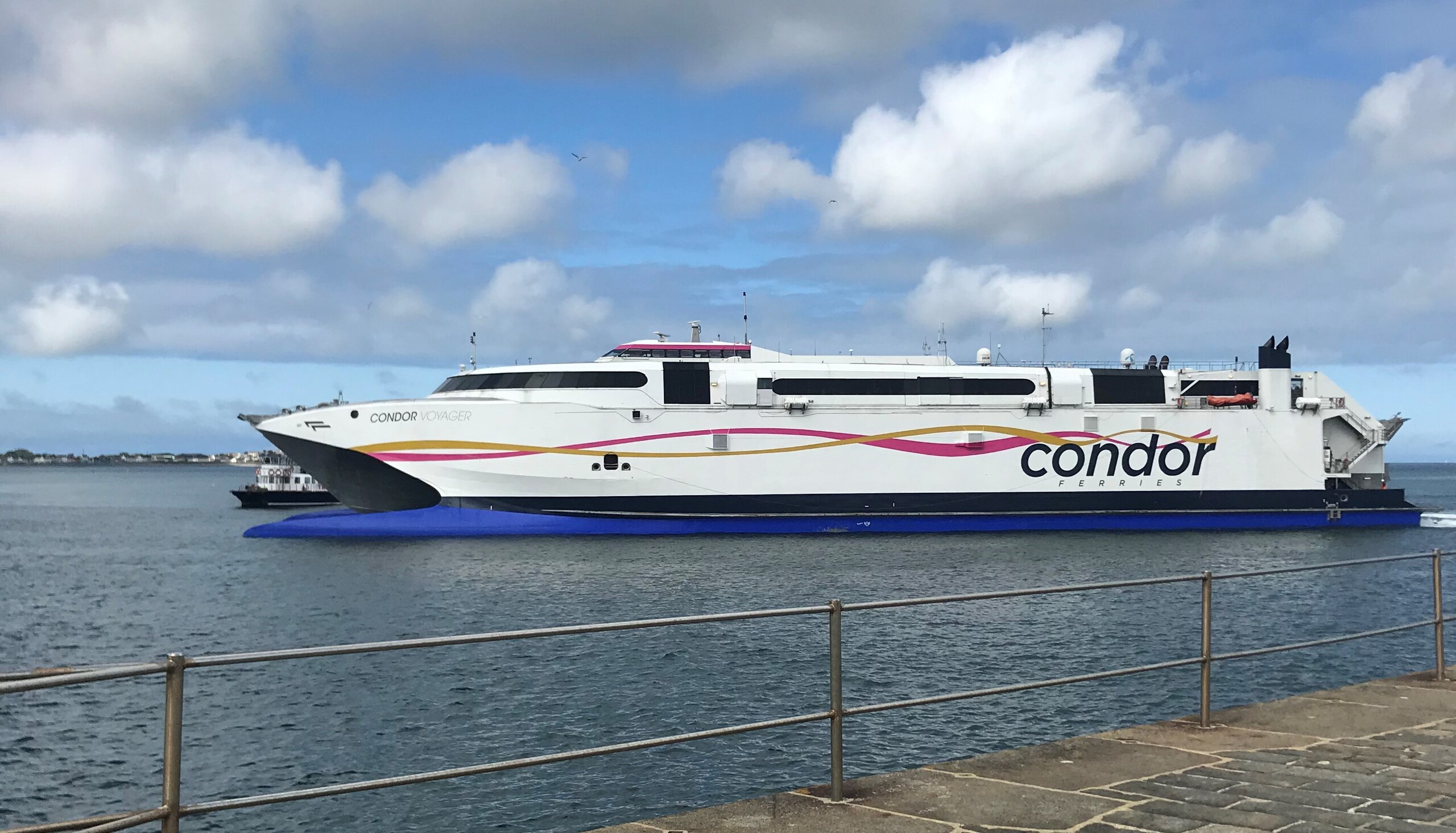
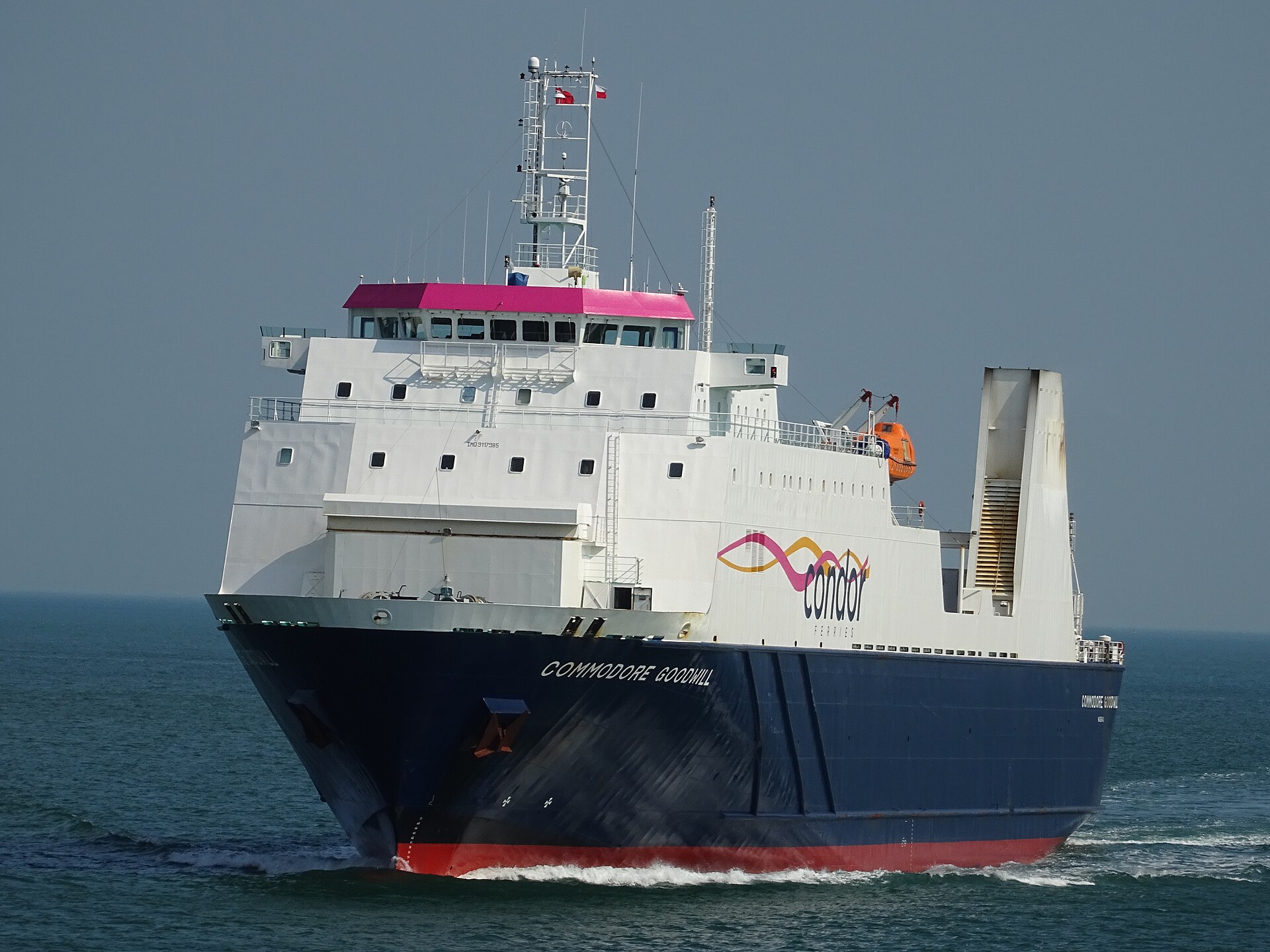
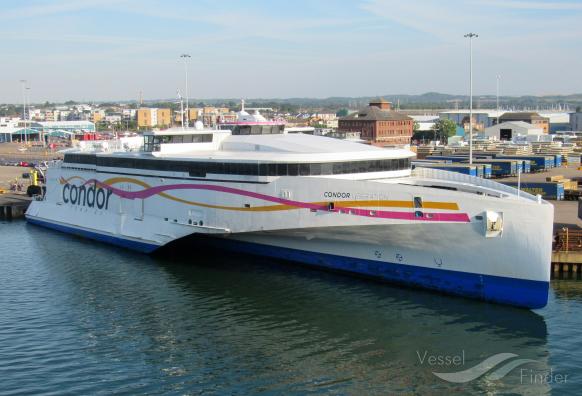
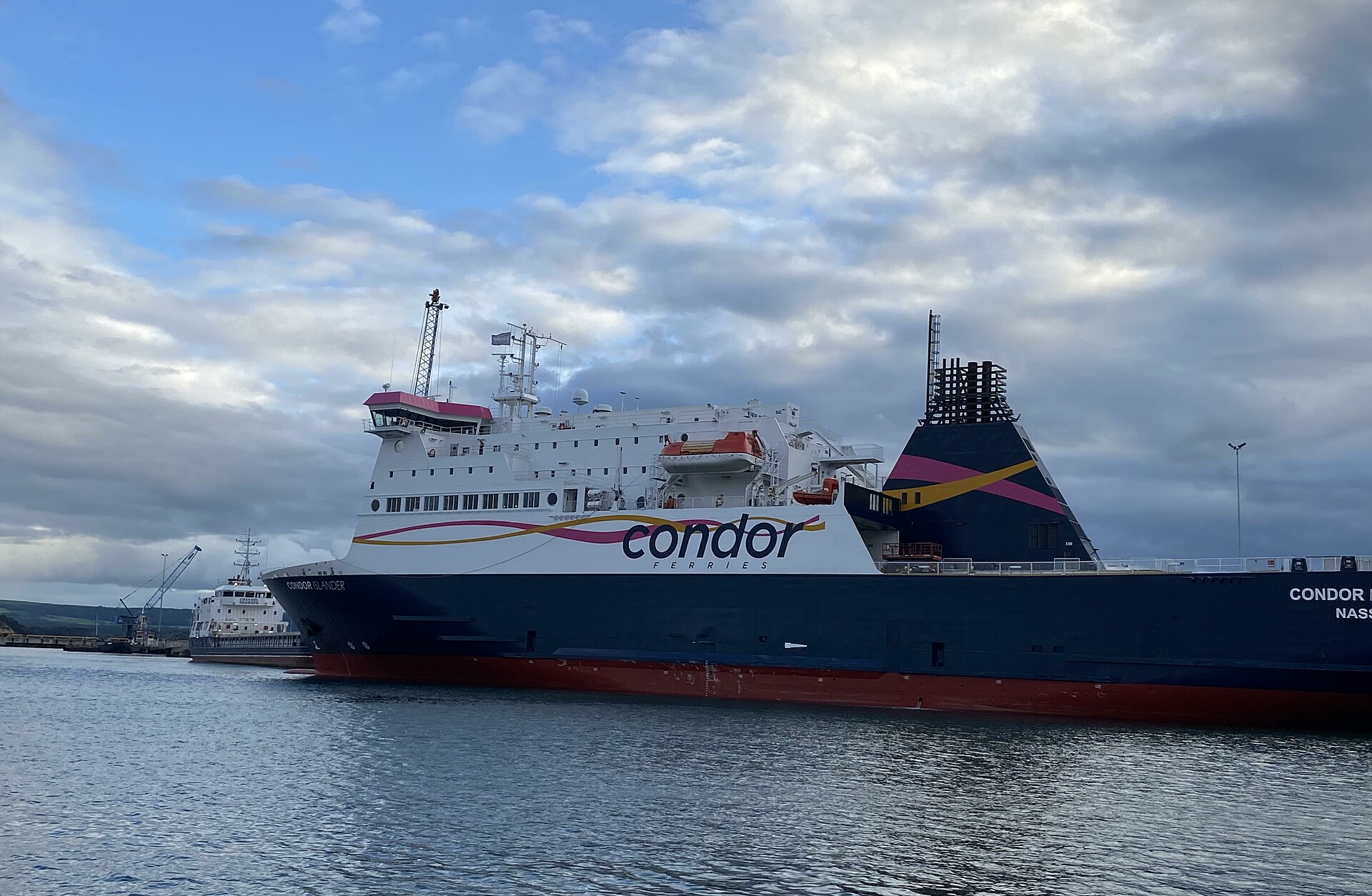
Technological Innovations and Sustainability Initiatives
The evolution of Condor Ferries’ fleet is not just about adding more ships; it’s about innovatively integrating cutting-edge technologies that push the boundaries of what maritime transport can achieve in terms of environmental sustainability and operational efficiency.
Eco-Friendly Technologies: In line with global trends and regulatory demands, Condor Ferries has progressively incorporated eco-friendly technologies into its fleet operations. This includes the use of cleaner fuels, energy-efficient engines, and systems designed to reduce emissions. For instance, the newer vessels are equipped with advanced propulsion systems that minimize fuel consumption and lower carbon emissions, aligning with the company’s goal to become climate neutral by 2050.
Navigational and Safety Enhancements: The introduction of advanced navigational aids and safety features across the fleet has significantly reduced the risk of maritime accidents and improved operational accuracy. GPS tracking, AIS (Automatic Identification Systems), and sophisticated radar technology ensure that each vessel can navigate safely through busy shipping lanes and challenging weather conditions.
Passenger Comfort and Accessibility: Recognizing that the travel experience is a crucial part of customer satisfaction, Condor Ferries has made substantial investments in improving onboard amenities. This includes more comfortable seating, better accessibility for passengers with disabilities, upgraded dining options, and enhanced entertainment systems. These improvements make the journey more enjoyable and accessible for all passengers, reinforcing Condor’s reputation as a preferred choice for sea travel in the region.
Operational Efficiency
Operational efficiency is a key focus for Condor Ferries, as streamlined operations directly impact customer satisfaction and environmental footprint. This involves everything from optimizing route planning to reducing turnaround times in ports. The integration of technology has enabled Condor Ferries to operate more efficiently, ensuring that schedules are kept, and resources are used judiciously.
Chapter 3: Steering Towards Sustainability
As a vital connector between the Channel Islands, the UK, and France, Condor Ferries not only recognizes its role in facilitating transport but also its capacity to influence environmental and social dynamics positively. With a visionary goal of achieving climate neutrality by 2050, Condor Ferries’ commitment to sustainability is comprehensive, tackling issues from emissions to community engagement with a multi-faceted approach. This chapter delves into the company’s robust environmental strategies, community integration efforts, and educational initiatives, demonstrating how Condor integrates sustainable practices into its core operations.
Environmental Commitments
1. Reducing Carbon Footprint
- Fleet Modernization: Condor Ferries has been proactive in modernizing its fleet with the latest eco-friendly technologies. This includes integrating hybrid propulsion systems that reduce diesel consumption and incorporating advanced hull designs to minimize resistance, thereby enhancing fuel efficiency.
- Operational Efficiencies: Through careful route planning and speed optimizations, Condor Ferries ensures that fuel consumption and emissions are kept to a minimum. The use of real-time data to monitor and adjust routes and speeds helps in significantly reducing the environmental impact.
- Alternative Fuels: Exploring the use of alternative fuels such as LNG (Liquefied Natural Gas) and biofuels is part of Condor’s long-term strategy to decrease dependency on traditional fossil fuels. These fuels emit fewer pollutants and are a step towards greener maritime operations.
2. Waste Management and Recycling Initiatives
- Onboard Recycling: Condor Ferries has implemented stringent waste segregation processes on all its vessels to ensure that recycling rates are maximized and that less waste goes to landfills.
- Reducing Single-Use Plastics: The company has pledged to drastically cut down the use of single-use plastics on its ships and at its terminals. Replacements with biodegradable options and encouraging passengers to use refillable water bottles and containers are measures actively promoted.
- Waste Audits: Regular waste audits are conducted to identify areas where waste reduction can be further optimized. These audits help in formulating new policies and strategies to enhance the waste management framework.
3. Energy Conservation Measures
- LED Lighting: Switching to LED lighting across its fleet and at port facilities helps in reducing energy consumption significantly.
- Energy Efficient Appliances: All onboard appliances are chosen based on their energy efficiency ratings, reducing electricity use and minimizing the environmental footprint.
- Solar Power: Implementing solar panels on some vessels and at port terminals to supplement the energy needs has been a successful pilot project, with plans for expansion.
Community Integration
1. Condor Community Fund
- Supporting Local Causes: The Condor Community Fund has been instrumental in supporting various local initiatives that focus on health, education, and environmental conservation. This fund not only aids in the immediate needs of the community but also fosters long-term sustainability.
- Disaster Relief Contributions: In times of need, such as after natural disasters, Condor Ferries has utilized its resources and network to provide aid and support to affected communities, demonstrating its commitment to societal welfare.
2. Partnerships with Local Businesses
- Local Sourcing: Prioritizing local suppliers for goods and services not only helps reduce carbon footprints but also boosts the local economy. Condor Ferries is committed to sourcing from local farms and businesses for its catering services on board.
- Supporting Tourism: By collaborating with local tourism boards, Condor helps promote the islands as premier tourist destinations, thereby supporting the local tourism industry and contributing to economic development.
3. Educational and Training Initiatives
- Maritime Education Partnerships: Condor Ferries works closely with maritime schools and educational institutions to provide training and career opportunities for students. These partnerships help foster a new generation of maritime professionals who are equipped with the skills needed for a sustainable future.
- Public Awareness Campaigns: Through workshops, seminars, and onboard displays, Condor educates passengers about environmental issues and the company’s sustainability initiatives. This education aims to raise awareness and encourage passengers to adopt more sustainable practices in their daily lives.
Sustainability Reporting and Transparency
1. Annual Sustainability Reports
- Transparent Reporting: Condor Ferries publishes an annual sustainability report detailing its environmental performance, community engagement activities, and future goals. This transparency builds trust and accountability with passengers, stakeholders, and regulatory bodies.
- Stakeholder Engagement: The company regularly engages with stakeholders through surveys, feedback mechanisms, and public forums to discuss and align its sustainability strategies with community expectations and regulatory requirements.
2. ESG Performance Metrics
- Benchmarks and Goals: Condor Ferries sets clear benchmarks and goals for various environmental, social, and governance (ESG) aspects. Progress is meticulously tracked and reported to ensure continuous improvement.
- Certifications and Awards: Achieving and maintaining environmental and social governance certifications, Condor strives for excellence in operational and corporate responsibility.
Chapter 4: Charting Future Courses
Innovative Horizons
As Condor Ferries looks toward the horizon, the company is not merely navigating the current tides but actively shaping the future of maritime transportation. The commitment to innovation is evident in several groundbreaking projects and plans that promise to redefine the standards of efficiency and sustainability in the industry.
- Advanced Vessel Technologies: Condor Ferries is exploring the integration of cutting-edge technologies such as hybrid propulsion systems and advanced hull designs that minimize drag and maximize fuel efficiency. These innovations are not just about adhering to environmental regulations; they represent Condor’s proactive approach to reduce its ecological footprint and enhance the passenger experience.
- Electric and Hydrofoil Developments: The potential introduction of electric hydrofoiling boats marks a significant step towards zero-emission marine transport. These vessels offer the dual benefits of reduced operational costs and environmental impact, while maintaining the speed and comfort that Condor’s passengers expect. Trials of battery-powered hydrofoil ferries are being considered, positioning Condor as a pioneer in this revolutionary maritime technology.
- Digital Transformation: Embracing digital technology, Condor Ferries is set to implement enhanced onboard connectivity solutions, improving both operational efficiency and customer satisfaction. This includes the deployment of real-time navigation systems, IoT for better asset management, and AI-driven predictive maintenance tools that ensure higher standards of safety and reliability.
Expanding Routes and Enhancing Connectivity
Expansion of services is a critical part of Condor’s strategy for growth and community service. The company is continuously assessing the viability of new routes and the enhancement of existing ones to better serve the needs of its passengers and business clients.
- Exploring New Markets: Investigating potential new routes to coastal cities in Europe and expanding the network within the Channel Islands are on the agenda. These expansions are aimed at boosting tourism and providing more options for local and international travelers, thereby stimulating the local economies.
- Enhancing Existing Services: Condor is also focusing on improving the frequency and reliability of its current routes. This includes scheduling more crossings and ensuring that time tables are aligned with the needs of the communities they serve. Enhancements to ticketing systems, with more flexible fare options and seamless booking experiences, are also planned to attract a broader passenger base.
- Infrastructure Investments: Partnering with port authorities in Jersey, Guernsey, and the UK, Condor Ferries is involved in discussions about port modernization projects. Upgrading infrastructure not only supports larger, more efficient vessels but also enhances passenger and cargo handling capabilities. These improvements are crucial for accommodating future growth and ensuring that port facilities keep pace with the advancements in ferry operations.
Sustainability at the Helm
Condor’s vision for a sustainable future is comprehensive, addressing not only the environmental impact of its operations but also the broader implications for the communities it serves.
- Comprehensive Environmental Strategies: Building on its commitment to become climate neutral by 2050, Condor is setting intermediate targets such as reducing its total carbon emissions by 40% by 2030. These goals are aligned with international environmental standards and local regulatory frameworks, ensuring that Condor not only leads in compliance but also in conservation.
- Community and Stakeholder Engagement: Understanding that its operations have far-reaching effects, Condor Ferries is ramping up its engagement with local communities, governments, and environmental organizations. This includes regular stakeholder meetings, participation in environmental initiatives, and transparent reporting of its environmental performance.
- Education and Awareness Programs: Condor is committed to educating the public and its employees about the importance of sustainable practices. This includes onboard information sessions about the marine environment, supporting local environmental educational programs, and conducting workshops and training for staff on best environmental practices.
Chapter 5: Community and Recognition
Awards and Accolades
Over the years, Condor Ferries has been recognized with numerous industry awards, highlighting its dedication to excellence and sustainability. The accolades serve as a testament to its robust environmental strategies and its commitment to the communities it serves. One of the most prestigious recognitions is the IJGlobal ESG Technology Award, which Condor Ferries received for its innovative practices in sustainable travel. This award is given to organizations that demonstrate a strong commitment to environmental, social, and governance (ESG) principles in their business operations.
In addition to the IJGlobal ESG Technology Award, Condor Ferries has also been honored with several other awards including:
- Green Fleet Awards: For its efforts in reducing emissions and promoting sustainable maritime transport.
- Community Impact Awards: Recognizing Condor’s significant contributions to local community projects and charities.
- Safety and Compliance Recognition: For maintaining high standards in safety protocols and regulatory compliance, ensuring passenger and crew safety on all voyages.
These accolades reflect Condor Ferries’ pivotal role not just in marine transportation but in shaping a sustainable business model that others in the industry look up to.
Stakeholder Engagement
Condor Ferries believes in the power of active and transparent engagement with all its stakeholders, including passengers, employees, local communities, and regulatory bodies. This approach helps the company to remain responsive to the needs and expectations of the communities it serves, and to align its operations with those needs.
- Passenger Engagement: Condor Ferries regularly collects feedback through surveys and direct interactions, which helps them to understand passenger needs and improve service quality. They also maintain a dynamic presence on social media platforms where they actively communicate with customers and provide updates about services and initiatives.
- Employee Relations: Understanding that its staff is its greatest asset, Condor Ferries invests in comprehensive training programs, career development opportunities, and a supportive work environment. The company also runs internal engagement surveys to gather insights and suggestions from its workforce, ensuring that they feel valued and heard.
- Community Relations: Condor Ferries is deeply integrated into the local communities of the Channel Islands and beyond. Through the Condor Community Fund, the company supports various local causes, from environmental conservation projects to educational programs. Moreover, Condor engages in sponsorships and partnerships with local events and festivals, further embedding itself within the cultural fabric of the regions it serves.
- Regulatory and Industry Collaboration: Condor maintains open lines of communication with maritime and transport regulators to ensure full compliance with safety and environmental standards. The company also collaborates with industry bodies to advocate for sustainable practices across the maritime sector.
Social Responsibility and Environmental Initiatives
Condor Ferries’ commitment to corporate social responsibility is comprehensive and multifaceted. This commitment extends beyond simple compliance with environmental laws to proactive engagement in initiatives that significantly benefit environmental and social spheres.
- Environmental Programs: Condor Ferries has implemented several initiatives aimed at reducing its environmental footprint. These include investing in cleaner fuel technologies, reducing waste through better management systems, and implementing energy-efficient practices on board and at their facilities.
- Supporting Local Economies: Condor Ferries is a crucial economic engine for the Channel Islands. By facilitating tourism and commerce, the company helps to support local businesses and promote economic growth. Condor also prioritizes local suppliers and contractors in its operations, further supporting the local economies.
- Educational Outreach: Recognizing the importance of education in sustainable development, Condor Ferries engages in educational outreach programs. These programs aim to raise awareness about maritime careers among young people in the Channel Islands and surrounding areas, encouraging them to consider careers in this vital industry.
Through its commitment to excellence, community engagement, and environmental stewardship, Condor Ferries does more than transport passengers and goods; it serves as a model for corporate responsibility and industry leadership. The company’s ongoing dialogue with its stakeholders ensures that it remains at the forefront of the maritime transport industry, ready to adapt and innovate in ways that benefit both people and the planet.
As Condor Ferries continues to navigate the challenging waters of the maritime industry, its dedication to the communities it serves and its pioneering spirit in sustainable practices are more crucial than ever. The journey is long, and the seas may be rough, but Condor Ferries is well-equipped to continue making a profound impact on regional development and global maritime practices.


